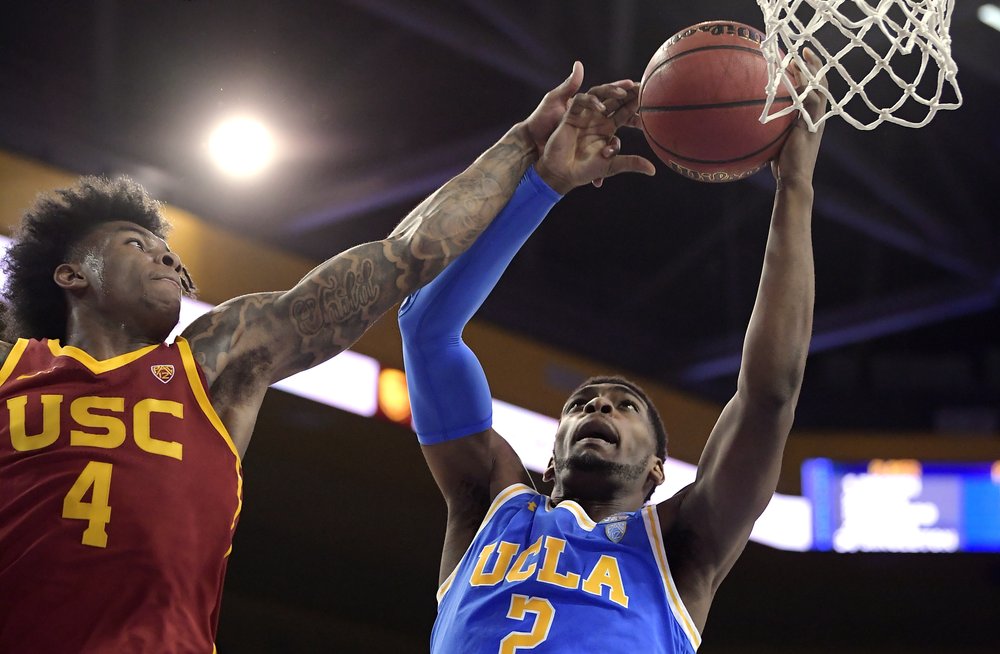
Chalk one up for the “student athletes.”
California is on the verge of striking a mortal blow to the system that’s been sponging free labor off its “student athletes” for decades. The state is en route to approving a law that gives players a chance to make some money for playing games that entertain the masses and seem to make everyone rich except the players themselves.
It’s been a long time coming, and the only real question is to what extent NCAA leaders will go to fight this.
By the looks of things, they’re ready to rumble.
In the wake of the state Assembly passing the Fair Pay to Play Act, NCAA leaders sent a letter to Gov. Gavin Newsom on Wednesday, urging him not to sign the bill.
“It would erase the critical distinction between college and professional athletics and, because it gives those schools an unfair recruiting advantage, would result in them eventually being unable to compete in NCAA competitions,” the letter said.
The second part of this argument makes sense. If a player who attends college in California can get a sponsorship deal while those in other states can’t, it builds in an advantage that not even the shadiest college recruiter and his shoe-company buddies can match.
But the first part — the part about the “critical distinction between college and professional athletics” — is disingenuous to the core, a notion as antiquated as the peach basket and leather helmet, and the reason this whole thing is bound to change.
The notion that these near-full-time athletes in these billion-dollar sports are amateurs, or that they shouldn’t get paid, runs counter to the tenets of basic fairness and feels downright un-American. Hard to believe the Olympics — hardly run by the most forward-thinking or athlete-centric organizations — were decades ahead of the NCAA when it came to unwinding the charade of amateurism in its sports.
“It’s a fundamental truth of life that our innate ability is what creates our livelihood,” said Jeremy Bloom, the former skier/football player who, years ago, got caught in the NCAA crosshairs for having the temerity to want to play both sports and to have sponsors in one (skiing) so he could fund his Olympic dreams. “These are the abilities of these people, and there’s no reason they shouldn’t have the ability to monetize that, irrespective of whether their education is getting paid for or not.”
In most cases, it is being paid for. But that, along with the couple of grand extra that the biggest schools agreed to give to augment some of these scholarships while also relieving pressure for bigger reform, has always felt like the very least they could do.
The California bill is reasonable in that it doesn’t ask colleges to pay any more to the athletes (even though most could afford it), but rather, gives players a chance to hire an agent, put themselves out on the market and see what they can make.
Only a very few would have a legitimate chance to get rich from this. Many more might make a little something — enough to buy a car, fill up the gas tank, go to dinner, etc. The vast majority of soccer and volleyball and field hockey players wouldn’t notice any difference. Most fans wouldn’t either.
The NCAA, in its letter, says it has the students’ best interests in mind and that “NCAA member schools already are working on changing rules for all student-athletes to appropriately use their name, image and likeness in accordance with our values.”
Lawmakers, however, moved faster than the NCAA — let that soak in for a minute — and the NCAA’s swift, terse reaction gave them a clear picture about the agendas of the people whose cages they’re rattling.
In addition to threatening to bar California schools from NCAA championships (Think of the possibilities: Winner of March Madness plays UCLA for the real national title.), the NCAA called the bill unconstitutional, a notion that immediately brings with it the specter of a court case.
That’s how seriously the NCAA appears to take this threat. It’s a sign of how far NCAA President Mark Emmert and his cronies are willing to go to protect a way of life that has lined all its schools’ coffers along with the pocketbooks of all the administrators, TV networks, coaches and sponsors involved in college sports.
Everyone but the players.
If Newsom signs the bill, which would go into effect in 2023, the NCAA will have two choices: fight it in court, or sit down and get serious about changing the antiquated structures that have ruled college sports at the expense of athletes for decades. Or do both on parallel tracks.
However it goes, it feels like change is on the way.
“It’s inevitable, it’s coming,” Bloom said. “A lot of people have been slowly chipping away, chipping away, and then, suddenly, it’s going to be an iceberg coming off. It could certainly make a lot of lives better for a lot of people in a lot of sports.”
TOP PHOTO: FILE – In this Feb. 28, 2019, file photo, UCLA forward Cody Riley, right, grabs a rebound away from Southern California guard Kevin Porter Jr. during the first half of an NCAA college basketball game in Los Angeles. The NCAA’s Board of Governors is urging Gov. Gavin Newsom not to sign a California bill that would allow college athletes to receive money for their names, likenesses or images. In a six-paragraph letter to Newsom, the board said the bill would give California schools an unfair recruiting advantage. As a result, the letter says, the NCAA would declare those schools ineligible for its events. (AP Photo/Mark J. Terrill, File)
More AP sports: https://apnews.com/apf-sports and https://twitter.com/AP_Sports










